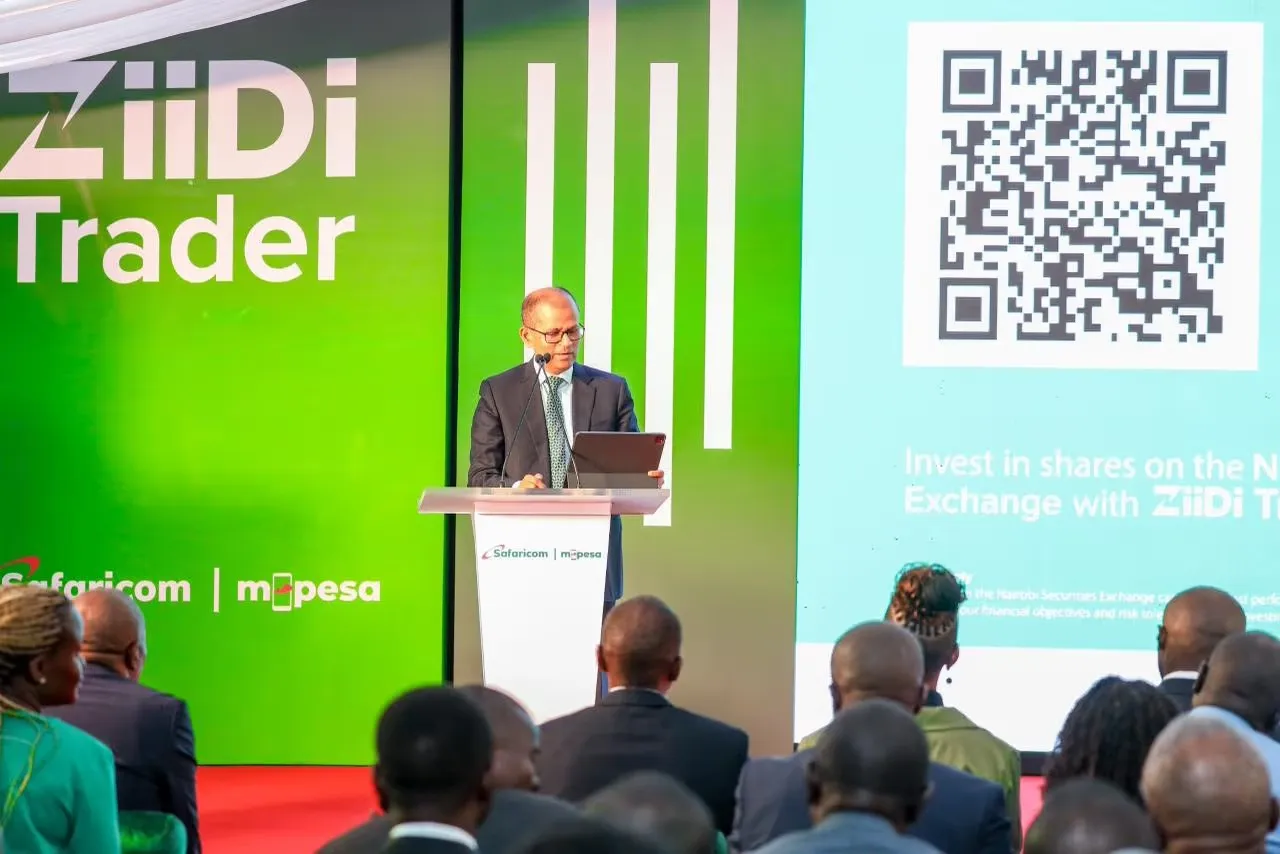The financial landscape in Kenya has seen a notable development with the Central Bank of Kenya (CBK) announcing the cancellation of the authority granted to Bank Al-Habib Ltd (BAHL) of Pakistan to operate its Representative Office in Kenya. This decision, effective May 15, 2025, follows a strategic rationalization by BAHL to consolidate its international operations, signaling a broader trend among global financial institutions to reassess their footprints in emerging markets.
The cancellation, officially communicated on May 5, 2025, came after regulatory approval from the CBK on April 30, 2025. BAHL’s presence in Kenya began on April 9, 2018, when it was authorized by the CBK to establish its representative office. The CBK’s action is in line with Section 43 of the Banking Act, which governs the operations and oversight of such entities within Kenya’s financial sector.
The Nuances of a Representative Office: More Than Just a Branch
To fully grasp the implications of BAHL’s exit, it’s crucial to understand the distinct role of a bank’s representative office. Unlike a full-fledged commercial bank branch or subsidiary, a representative office operates with significant limitations. In Kenya, as outlined by the Central Bank of Kenya’s guidelines and reinforced by Section 43 of the Banking Act, a representative office is strictly prohibited from engaging in core banking activities. This means it cannot:
- Accept deposits from customers.
- Open accounts for clients.
- Extend loans or advances to any party.
- Deal in foreign currencies or securities in its own name.
- Perform or participate in any other typical banking operations, such as issuing Letters of Guarantee or opening Letters of Credit.
Instead, BAHL’s Representative Office in Kenya primarily served as a marketing and liaison office for its parent bank and international affiliates. Its functions were limited to:
- Representing the foreign institution in marketing and liaison activities.
- Promoting its services in Kenya through marketing and liaison roles.
- Providing its Head Office with information regarding economic developments in Kenya and the broader East African region.
- Offering its customers information about the local market, as well as general banking, financial, and other relevant advice (but not direct banking services).
- Facilitating transactions by providing customers with necessary documentation and offering document authentication and validation services.
- Engaging with regulatory stakeholders, such as the CBK, to maintain compliance and foster relationships.
- Exploring broader business development opportunities and conducting market research without directly generating income within Kenya.
Essentially, a representative office acts as an exploratory and facilitative outpost, allowing a foreign bank to maintain a presence, gather market intelligence, and nurture relationships without incurring the significant capital and operational costs associated with a full banking license. For BAHL, its Kenya office was its sole representative operation in East Africa, highlighting its initial strategic interest in the region.
Regulatory Oversight: Understanding Section 43 of the Banking Act
The Central Bank of Kenya’s decision to cancel BAHL’s authority is rooted in its regulatory mandate, specifically Section 43 of the Banking Act. This section empowers the CBK to authorize, and by extension, revoke the authority of, foreign banks or financial institutions that do not intend to transact banking or financial business in Kenya but wish to establish a representative office.
Section 43(1) of the Banking Act explicitly states that “The Central Bank may, in writing and subject to such conditions as the Central Bank may consider necessary, authorize a bank or a financial institution incorporated outside Kenya which does not propose to transact banking or financial business in Kenya but which proposes to establish a Representative Office in Kenya.” This legislative provision gives the CBK the power to set the terms under which such offices operate and to revoke that authority if conditions are not met or if the institution decides to cease operations.
The CBK’s role as the primary regulator of Kenya’s banking sector is to ensure the stability, soundness, and integrity of the financial system. This includes overseeing both licensed banks and representative offices to safeguard against financial misconduct and ensure compliance with established regulations. In BAHL’s case, the cancellation was a result of the bank’s voluntary decision to exit, rather than any regulatory breach or financial impropriety on its part. This orderly withdrawal demonstrates the effectiveness of the regulatory framework in managing the entry and exit of foreign financial entities. The process involves comprehensive requirements for setting up, including notarized constitutional documents, corporate and management structures, licenses from the home country, financial statements, and the designation of a chief representative officer to liaise with the CBK.
BAHL’s Strategic Rationalization: A Global Trend
BAHL’s closure in Kenya is not an isolated incident but rather a reflection of a broader, strategic shift aimed at consolidating its international operations. The bank’s decision, officially communicated on May 5, 2025, and approved by the CBK on April 30, 2025, aligns with a global trend of financial institutions rethinking their international footprints.
Several factors drive such rationalization efforts by international banks:
- Efficiency and Cost Optimization: Maintaining a global network of offices, even representative ones, incurs significant operational costs. In an increasingly competitive and digitally driven financial landscape, banks are under pressure to optimize efficiency and reduce overheads. Consolidating operations allows them to streamline processes, reduce administrative burdens, and reallocate resources to more profitable or strategically vital markets.
- Regulatory Burdens: The post-2008 financial crisis era has seen a dramatic increase in global banking regulations, including stricter capital requirements (e.g., Basel III), enhanced anti-money laundering (AML) and know-your-customer (KYC) compliance, and more stringent reporting standards. These regulations impose substantial compliance costs and operational complexities, particularly for banks operating across multiple jurisdictions with varying regulatory regimes. Some banks find it more efficient to concentrate their operations in fewer, larger markets where they can achieve economies of scale in compliance. As noted by Oxford Business Group, regulation is frequently cited as a key driver for banks pulling out of certain countries.
- Shifts in Global Capital Allocation: Banks continuously review their capital allocation strategies to maximize returns and manage risk effectively. If certain markets or types of operations are no longer delivering the desired profitability or strategic value, capital may be re-deployed to higher-growth regions or core banking jurisdictions where the bank has a stronger competitive advantage or greater market depth.
- Market Concentration and Competition: In some emerging markets, intense competition from well-established local banks, coupled with the rise of FinTech disruptors, can make it challenging for foreign players to achieve significant market share or profitability, especially through limited representative offices. This can lead foreign banks to focus on markets where they can leverage their unique strengths more effectively.
- Focus on Core Business: Some banks may choose to divest from non-core operations or geographies to sharpen their focus on their primary business lines or home markets. This allows them to dedicate resources to areas where they have deep expertise and a strong competitive edge.
BAHL’s decision to streamline its international presence and concentrate on “higher-growth markets and core banking jurisdictions” aligns perfectly with these global trends. While the specific details of BAHL’s internal global review are not public, the general motivations for such a strategic shift are well-understood within the international banking community. The bank’s assurance to honor all legal obligations before its exit, and the appointment of Oraro & Company Advocates to handle queries, underscores a professional and orderly withdrawal process.
Kenya’s Dynamic Banking Landscape: Opportunities and Challenges
Kenya remains an attractive market for financial services, often viewed as a regional hub for East Africa. Its strategic location, relatively stable economy, growing middle class, and high rates of financial inclusion (driven largely by mobile money innovations) present significant opportunities for banks. The country’s robust regulatory framework, overseen by the CBK, also provides a degree of stability and investor confidence.
However, the Kenyan banking sector is also characterized by intense competition. With numerous local and international players, banks constantly vie for market share. This competition is exacerbated by:
- Digital Disruption: Kenya is a global leader in mobile money (M-Pesa being a prime example) and digital financial services. This digital disruption has reshaped customer expectations, lowered transaction costs, and introduced new non-bank competitors, forcing traditional banks to heavily invest in digital transformation or risk losing relevance. While this creates opportunities for innovation, it also demands significant investment and strategic agility.
- Local Licensing Costs and Regulatory Compliance: While the CBK aims for a stable environment, local licensing costs and the ongoing burden of regulatory compliance can be significant for foreign entities, especially if their direct operational scope is limited, as in the case of a representative office.
- Consolidation Trends: The Kenyan banking sector has witnessed a wave of consolidation in recent years, driven by the need for scale, efficiency, and stronger capital bases. This trend sees larger, more established local banks acquiring smaller or struggling entities to strengthen their market position. Notable examples include:
- SBM Bank Kenya’s acquisition of the majority of assets and liabilities of Chase Bank Kenya Limited (in receivership).
- I&M Bank’s strategic acquisitions and mergers aimed at bolstering its market presence. This consolidation creates a more formidable competitive environment for smaller players or those with limited operational mandates.
These dynamics mean that while Kenya remains attractive, foreign banks must carefully weigh the opportunities against the costs and competitive pressures. For some, like BAHL, a representative office might no longer align with their evolving global strategy in such a rapidly changing market.
Beyond Direct Presence: The Enduring Role of Correspondent Banking
Even with the cancellation of its representative office license, BAHL may continue its involvement in Kenya indirectly through correspondent banking relationships and partnerships in trade finance and corporate banking.
A correspondent banking relationship is a crucial aspect of international finance, where one bank (the correspondent bank) provides services on behalf of another bank (the respondent bank) in a foreign country. These services typically include:
- Wire Transfers: Facilitating international money transfers.
- Trade Finance: Handling letters of credit, guarantees, and other instruments essential for international trade. This is particularly relevant for BAHL, which offers international trade finance services. Kenyan businesses engaged in trade with Pakistan or other regions where BAHL has a strong presence might still leverage BAHL’s network through a correspondent bank in Kenya.
- Clearing and Settlement: Enabling transactions in foreign currencies.
- Cash Management Services: Managing foreign currency accounts for the respondent bank.
For BAHL, maintaining correspondent relationships allows it to continue serving its clients’ international trade and corporate banking needs in Kenya without the overheads and regulatory complexities of a physical representative office. This is a common strategy for global banks seeking to rationalize their physical footprint while retaining access to key markets for specific services. It also benefits Kenyan banks by providing them with access to international payment systems and foreign currency services through their correspondent partners.
Broader Implications for Kenya’s Financial Sector
BAHL’s exit, while a strategic decision by the bank, underscores several ongoing dynamics within Kenya’s financial sector and the broader global banking industry:
- Maturing Market: The Kenyan banking sector is maturing, with increasing sophistication and regulatory oversight. This means that only those foreign players with a clear, long-term strategic fit and a willingness to invest significantly in full-fledged operations or specialized niches may thrive.
- Focus on Digital and Innovation: The emphasis on digital transformation continues to grow. Banks that can leverage technology to offer innovative, cost-effective services are best positioned for success. This might mean that traditional liaison roles of representative offices become less critical as digital communication and transaction platforms become more prevalent.
- Resilience of Local Banks: The consolidation trend indicates the growing strength and resilience of major local Kenyan banks. These institutions are increasingly capable of meeting the diverse financial needs of the market, potentially reducing the necessity for extensive foreign physical presences.
- Regulatory Vigilance: The CBK’s consistent application of the Banking Act, as seen in this cancellation, reinforces its commitment to maintaining a well-regulated and stable financial environment. This regulatory vigilance is crucial for attracting and retaining legitimate financial players while ensuring consumer protection.
While the news about BAHL’s departure might seem like a setback, it is more accurately viewed as an adaptation to evolving global and local financial realities. The Kenyan market remains vibrant, and its financial sector continues to attract interest, albeit with a sharper focus on strategic alignment and sustainable business models. The ongoing dialogue around investment, such as the mention of Kenya wooing Nigerian billionaire Tony Elumelu, highlights the continuous efforts to attract foreign direct investment and strengthen the economy, even as certain entities adjust their operational strategies.
Conclusion: A Calculated Evolution
The cancellation of Bank Al-Habib’s representative office license by the Central Bank of Kenya is a calculated evolution rather than a crisis. It reflects BAHL’s strategic decision to streamline its global operations in response to increasing regulatory demands, competitive pressures, and a desire for more efficient resource allocation. For Kenya, it underscores the maturity of its financial sector, where a robust regulatory framework ensures orderly transitions and a dynamic market continues to attract and reshape foreign engagement.
The move highlights that while direct physical presence may change, international financial relationships, particularly through correspondent banking and trade finance partnerships, remain vital. As the global banking industry continues to adapt to new technologies, regulatory landscapes, and economic shifts, such strategic adjustments are likely to become more common. Kenya’s financial sector, with its strong regulatory body and vibrant market, is well-positioned to navigate these changes, continuing its path as a key financial hub in East Africa.
Ready to take your career to the next level? Join our dynamic courses: ACCA, HESI A2, ATI TEAS 7 , HESI EXIT , NCLEX – RN and NCLEX – PN, Financial Literacy!🌟 Dive into a world of opportunities and empower yourself for success. Explore more at Serrari Ed and start your exciting journey today! ✨
photo source: Google
By: Montel Kamau
Serrari Financial Analyst
1st July, 2025
Article, Financial and News Disclaimer
The Value of a Financial Advisor
While this article offers valuable insights, it is essential to recognize that personal finance can be highly complex and unique to each individual. A financial advisor provides professional expertise and personalized guidance to help you make well-informed decisions tailored to your specific circumstances and goals.
Beyond offering knowledge, a financial advisor serves as a trusted partner to help you stay disciplined, avoid common pitfalls, and remain focused on your long-term objectives. Their perspective and experience can complement your own efforts, enhancing your financial well-being and ensuring a more confident approach to managing your finances.
Disclaimer: This article is for informational purposes only and does not constitute financial advice. Readers are encouraged to consult a licensed financial advisor to obtain guidance specific to their financial situation.
Article and News Disclaimer
The information provided on www.serrarigroup.com is for general informational purposes only. While we strive to keep the information up to date and accurate, we make no representations or warranties of any kind, express or implied, about the completeness, accuracy, reliability, suitability, or availability with respect to the website or the information, products, services, or related graphics contained on the website for any purpose. Any reliance you place on such information is therefore strictly at your own risk.
www.serrarigroup.com is not responsible for any errors or omissions, or for the results obtained from the use of this information. All information on the website is provided on an as-is basis, with no guarantee of completeness, accuracy, timeliness, or of the results obtained from the use of this information, and without warranty of any kind, express or implied, including but not limited to warranties of performance, merchantability, and fitness for a particular purpose.
In no event will www.serrarigroup.com be liable to you or anyone else for any decision made or action taken in reliance on the information provided on the website or for any consequential, special, or similar damages, even if advised of the possibility of such damages.
The articles, news, and information presented on www.serrarigroup.com reflect the opinions of the respective authors and contributors and do not necessarily represent the views of the website or its management. Any views or opinions expressed are solely those of the individual authors and do not represent the website's views or opinions as a whole.
The content on www.serrarigroup.com may include links to external websites, which are provided for convenience and informational purposes only. We have no control over the nature, content, and availability of those sites. The inclusion of any links does not necessarily imply a recommendation or endorsement of the views expressed within them.
Every effort is made to keep the website up and running smoothly. However, www.serrarigroup.com takes no responsibility for, and will not be liable for, the website being temporarily unavailable due to technical issues beyond our control.
Please note that laws, regulations, and information can change rapidly, and we advise you to conduct further research and seek professional advice when necessary.
By using www.serrarigroup.com, you agree to this disclaimer and its terms. If you do not agree with this disclaimer, please do not use the website.
www.serrarigroup.com, reserves the right to update, modify, or remove any part of this disclaimer without prior notice. It is your responsibility to review this disclaimer periodically for changes.
Serrari Group 2025
















